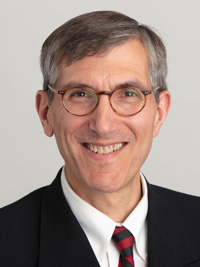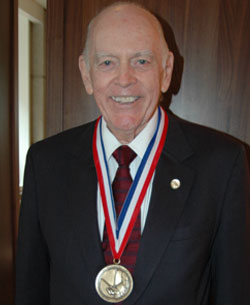Peter Marks, MD, PhD, to receive the 2026 Roscoe O. Brady Award

WORLDSymposium is excited to announce Peter Marks, MD, PhD, as the recipient of the 2026 Roscoe O. Brady Award. Over the past decade, Dr. Marks helped change the dynamic for rare disease research, prioritized innovation and meaningful patient engagement, and championed positive collaborations between researchers, pharmaceutical companies and families during his tenure at the FDA. His open dialogue with families, advocates, and sponsors, helped the rare disease community navigate regulatory considerations, and his years of leadership to advance the safety and availability of therapies and contributions will have a lasting impact on patients and the broader health care community. Dr. Marks has been an extraordinary and unwavering advocate for families experiencing rare diseases. Dr. Marks worked tirelessly to ensure patient voices not only were heard, but those voices also informed and guided the path forward. His legacy will be marked by his compassion, courage, and dedication to making a difference for all individuals with rare diseases.
Dr. Marks received his graduate degree in cell and molecular biology and his medical degree from New York University. He completed his residency in Internal Medicine and a fellowship in Hematology/Oncology at Brigham and Women’s Hospital in Boston, later serving in academic medicine and industry before joining the U.S. Food and Drug Administration in 2012. From 2016 to 2025, Dr. Marks served as Director of the Center for Biologics Evaluation and Research (CBER), where he was integrally involved in responses to multiple public health emergencies. He was elected to the National Academy of Medicine in 2022 and, in October 2025, Marks was appointed as the senior vice president of molecule discovery and head of infectious disease at Eli Lilly.
The 2026 Roscoe O. Brady Award will be presented at the beginning of the WORLDSymposium 2026 Basic Science Session on Tuesday, February 3 at 08:00 PST.
Following the Award presentation, Dr. Marks will share his perspective in a scientific presentation titled: Accelerating the Global Pace of Progress for Rare Diseases.
About the WORLDSymposium™ Roscoe O. Brady Award

The Roscoe O. Brady Award is given annually by WORLDSymposium to recognize one individual for outstanding innovation and accomplishment in the field of lysosomal disease research and therapy. Dr. Brady was the third recipient of the “Award for Innovation and Accomplishment.” After decades of research on the biology and biochemistry of lysosomal diseases, Dr. Brady undertook experimental administration of exogenous proteins to replace the patients’ genetic enzyme deficiencies. His ongoing work led to many discoveries in the field, mentoring and inspiring numerous other investigators.
In the process of treating three patients with Gaucher disease, biomarkers were discovered and validated. His work ultimately resulted in FDA approval (1991) and commercialization of the first “enzyme replacement therapy” (ERT). This was an intravenous biologic medication alglucerase for Gaucher disease, the human enzyme purified from massive quantities of normal human placenta. This landmark accomplishment was followed by approval of imiglucerase made using recombinant DNA technology. Later in his career, Dr. Brady investigated substrate depletion treatment, molecular chaperone therapy, and gene therapy for patients with lysosomal disorders.
After a lifetime (October 11, 1923 – June 13, 2016) with decades of work in the field, and with the approval from his family, the WORLDSymposium award for innovation and accomplishment was renamed in his honor at the WORLDSymposium 2018 meeting.
Nominations are solicited annually, from which one individual is selected by the Awards Committee. The awardee is announced in the February “Lysosomes Issue” of Molecular Genetics and Metabolism and is invited to accept the award and address the audience with a featured presentation at the annual WORLDSymposium meeting.
Past Award Recipients:
2025 James M. Wilson, MD, PhD
2024 Elsa Shapiro, PhD
2023 William A. Gahl, MD, PhD
2022 Stuart A. Kornfeld, MD
2021 Ellen Sidransky, MD
2020 John F. Crowley
2019 Danilo A. Tagle, PhD, MS
2018 Mark E. Haskins, VMD, PhD
2017 Konrad Sandhoff, PhD
2016 Emil D. Kakkis, MD, PhD
2015 Stephen C. Groft, PharmD
2014 Gregory A. Grabowski, MD
2013 Robert J. Desnick, PhD, MD
2012 John J. Hopwood, PhD
2011 Steven U. Walkley, PhD
2010 William S. Sly, MD
2009 Elizabeth F. Neufeld, PhD
2008 Roscoe O. Brady, MD
2006 Henri A. Termeer
2004 William Krivit, MD, PhD
